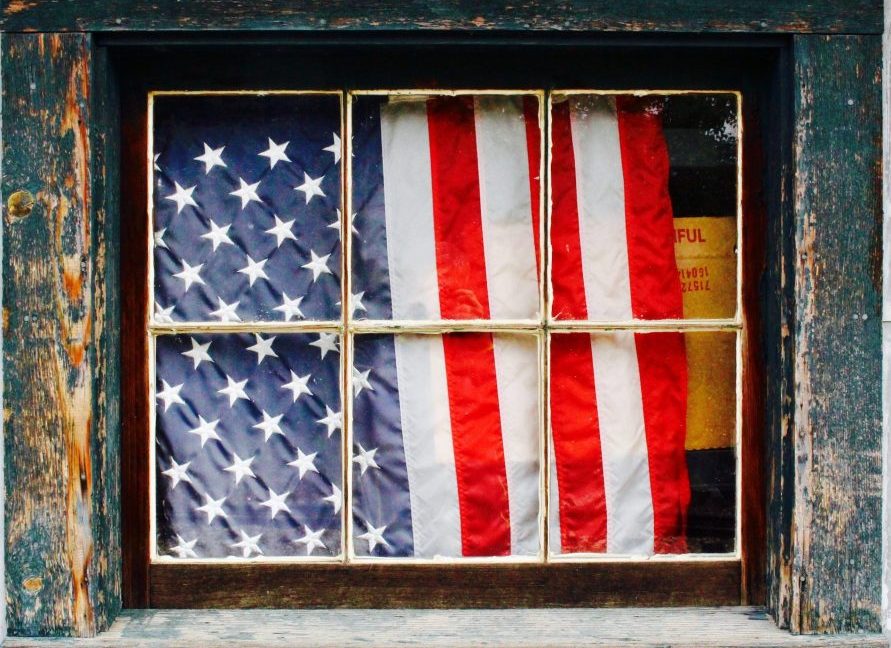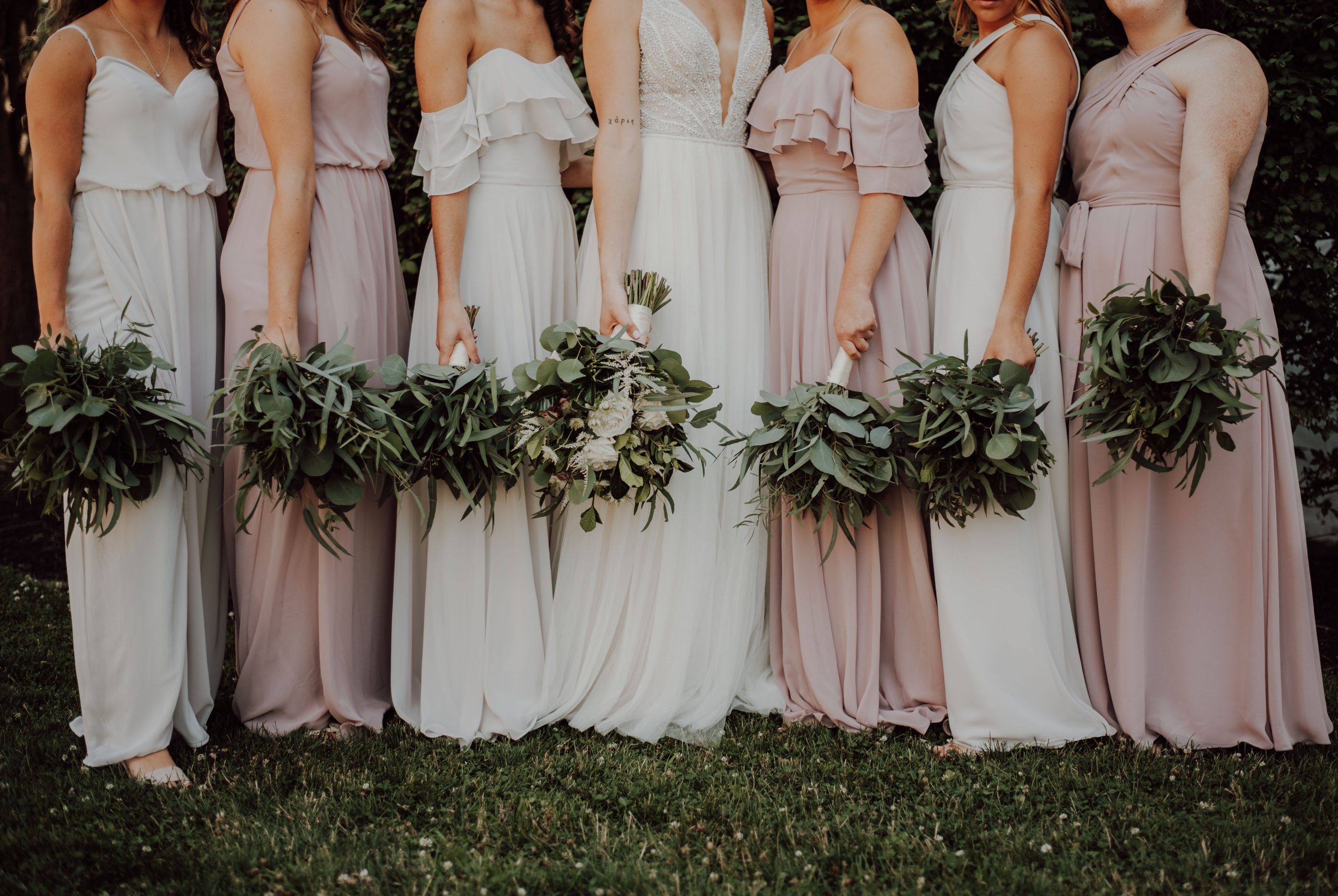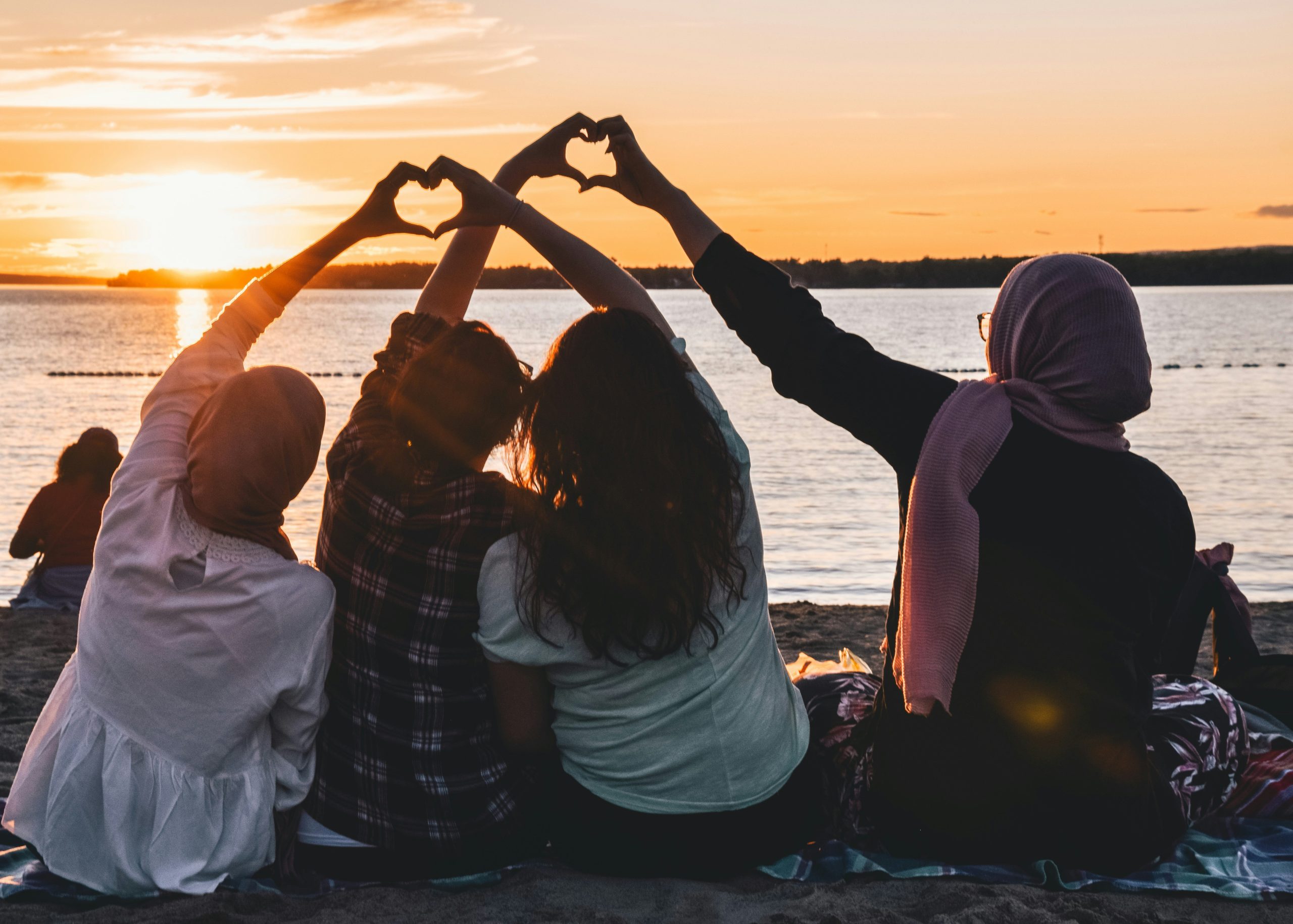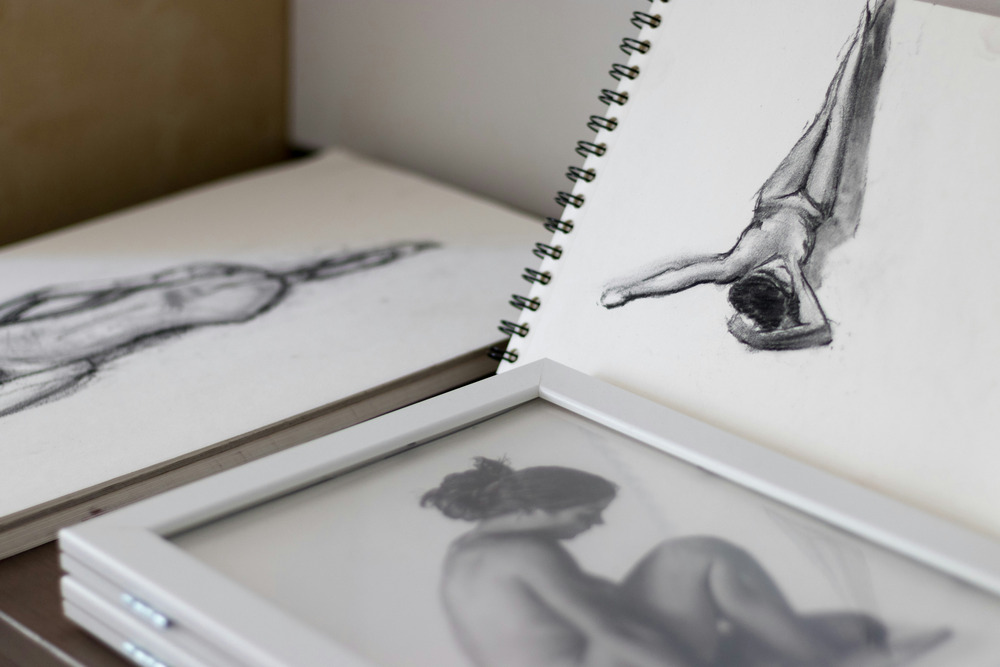Interviews
Traveling South to Understand the Soul of America
Imani Perry examines how the history of slavery, racism, and activism in the South has shaped the entire country

In South to America: A Journey Below the Mason Dixon to Understand the Soul of a Nation, Imani Perry, an Alabama native, returns to the South and meets with Southerners to chronicle their stories, past and present—from Henry Bibb, an enslaved man from New Orleans forced to rub salt brine into the bleeding back of a whipped woman, to a white civil war re-enactor at Harpers Ferry, to Brittany Howard of the Alabama Shakes.
Perry describes how from its founding the United States was “experimental and innovative as well as invasive. Resourceful even. But any virtues were distorted by a greater driver: unapologetic greed, which legitimized violent conquest and captivity,” stratifying the nation into a caste structure of “citizens, second-class citizens, non-citizens, and those who are cast so far beneath every other category it as though they are seen as non-persons.” She argues that our collective understanding of what it means to be an American is intertwined with the South—when we pay attention to the South and its history, we are better able to understand America.
Perry is the Hughes-Rogers Professor of African-American Studies at Princeton University and author of seven books, including Breathe: A Letter to My Sons and Looking for Lorraine: The Radiant and Radical Life of Lorraine Hansberry.
We spoke about how viewing racism as a Southern problem keeps our society from progressing, recognizing the targeting of trans kids as a pattern of oppression, and how Gen Z brings her hope.
Deirdre Sugiuchi: In the opening chapter, you say, “Race is at the heart of the South and at the heart of the nation…yet racism is described as belonging to the South, a region that is viewed as backwards.” How does this view that racism, that backwardness, is inherently of the South, keep us from progressing as a society?
Imani Perry: It’s strange because it’s almost like the South is that bad place down there, like an absolution for the other regions. The ways of doing—the exploitation, working people to death, the enclosures, the holding people captive—all that starts with trans-Atlantic slavery and and the colonial project. It is mastered in some ways in the South, but it flourishes everywhere. As a consequence, if you just say, well, that’s a Southern thing, then there’s no obligation to respond elsewhere. It also then becomes this defensive posture—the South is racist. And in some ways it becomes this détente of different parties, none of whom adequately address the issue of white supremacist practices.
DS: In this book you unearth myths of the founding fathers. Can you discuss why it’s important to expose the racism of our founding fathers, especially in this present moment?
It’s almost like the South is that bad place down there, like an absolution for the other regions.
IP: I’m at a moment in my life where I’m very skeptical of national myths. All nations have national myths, told to encourage patriotism and loyalty, but also to create for people a sense of themselves. Even the environmental crisis is fed by mythologies. Like this idea of a shining city on the hill, nothing could destroy it. Some of the founding fathers are deployed for this myth, and they were people who were deeply involved in a profoundly unjust order.
If we actually, instead of mythology, turn to truth and the complexity of these stories and the tragedy in the building of the nation, then we actually have the possibility of building something closer to being in right relation with each other.
Even though we don’t have slavery and Jim Crow, we have the residual effects, the practices where we are willing to actually treat large numbers of people in our world as though they are not fully human, whether they’re incarcerated, whether they are undocumented, whether they’re houseless all of these ways of being comes from that foundation. We tell the story fully because it helps us look at who we are now. Maybe this is why we’re okay with this, with completely excluding people, because this is the way that founding fathers behaved.
DS: You noted that the Moral Majority was born in Virginia and you said that’s not incidental, later noting how whiteness became an article of faith and that lynching burning, beating, raping and humiliating all became matters of faith in the white evangelical church. How do you see this reflected currently?
IP: Part of the moment we’re in, the book burning and banning, the idea of cutting off the moral imaginations of children, specifically white children, is an effort to destroy the possibility for white children to identify with anybody who’s not born in a very particular white Christian genealogy, which is an ethical matter. We want people to have the capacity to find inspiration for how to be in the world for everyone, but there’s an effort to shut that down. The targeting of trans kids and their families feels very similar to me to the trajectory from the anti-civil rights movement to the anti-choice movement—there’s a pattern of treating people as a kind of threat that has to be destroyed at all costs and to build an upset of laws around that destruction. It’s really important to understand the pattern.
One of the things I always bring up is Protestants didn’t really care about abortion until the waning civil rights movement. That was a Catholic thing. Abortion protests were actually drummed up to create a moral panic.
DS: You visited Parchman, a prison located on the site of a former Mississippi plantation. You discussed how the labor there is akin to slavery, but that the cruelty is not slavery, but being caught up in a system like slavery when you were by law free. Can you discuss how prisons are constant reminders of the past in the present?
IP: In the South, it’s really apparent because so many prisons are on plantations. I’ve been going to them in one way or another all my life. The landscape is the same. So much of the labor, and the conditions, the sweltering heat and the bugs and the inadequate nutrition—it’s like a repetition of that relationship to the land, but it’s also the composition of who is in prison. On the one hand, the prison farm looks like a plantation. On the other hand, pre-civil war, the prison population was not Black, but Black people were enslaved. It’s a feature of emancipation that prisons become Black spaces. There’s also the Jim Crow echo in incarceration and then there’s a couple of pieces. One is that often prisoners are doing labor that is essential for so many institutions, but is essentially unpaid. I work at a university—I assume like many universities, our chairs come from prison labor. We are taking advantage of this labor that we don’t have to see. That’s classically part of the structure of the transatlantic slave trade and slave plantation culture. Then there’s the injustice, the intensity of the correlation between illness and trauma and who winds up incarcerated. The fact that there’s not a direct connection between wrongdoing and punishment and who gets punished is based upon who is subject to surveillance—that’s totally racialized.
DS: You explore whiteness, how it is not a monolith, how whiteness as an identity can be fickle, how it is policed carefully, how white folks in the South are exploited by other whites, how white Americans were taught that if they expressed solidarity with exploited Black people, they would lose what DuBois termed as the “wages of whiteness.” Did your thinking about whiteness change as you wrote this book? If so, how or how not?
I don’t think that literature is organizing, but that literature can do the work of inspiring organizing or providing information that is meaningful for organizers.
IP: It didn’t change as much. What I had to struggle with is that I’m a movement baby. I was socialized on the left. I was always taught to think about exploitation of white labor alongside the logic of white supremacy, to understand white supremacy is dividing the labor force politically and alienating oppressed people from each other. But in working on the book, I had to bring together my emotional account with white Southerners, which has a wide range—there’s moments of terror, moments of rage. And then there’s moments of absolute tenderness. The intimacy piece is just real, there’s just a closeness, even in places where Black and white people don’t talk to each other much. There are parts of the South where we’re so similar, there’s an ease. That is part of the story that is harder to get to, but it’s really important to understand, because there’s potential there too.
DS: You interacted with Bob Zellner and Tom Gardner, who worked alongside your parents during the civil rights movement.
IP: The stories of white people in the movement were really important for me to include. It was interesting just to talk to them, because they also were people who were punished for their decisions and they sort of had to remake their lives.
DS: When you’re talking about the wages of whiteness—I’ve been thinking about this for years—part of the code of whiteness is to be silent. Because if you speak out, you will be punished.
IP: It’s a thing that doesn’t get talked about because there’s so much critique— appropriate, right?—of white saviorism. But that’s a different thing. But because of it, any discussion of what it means for a white American to decide “I don’t want to be part of the project of white supremacy” is silenced. Not to say it’s worse if white people are punished than when Black people are punished. But to say that’s part of how whiteness actually functions, is it makes it not okay to identify with non-white people at a deep level. We have to be able to identify that.
DS: When you were in Montgomery, you took part in this day long workshop on #MeTooHBCU with Tarana Burke and Yaya Blay and you asked the question, what do we do with #MeToo on the grounds of the lynching tree?
IP: One of the things that I have grown to understand is that there’s this sexualized racial violence—both the sort of mythologies of the Black male rapist, but also the sort of institutionalized rape of Black women on the plantation that continues in the context of Jim Crow and domestic labor. It’s also important to understand that the habits of sexual violence and secrecy and lies have expanded beyond what we think of as the larger racial logic, and are part of our lives at an intimate level in our families and our communities, so to be there and understand that the sexual violence that happens on an HBCU campus is hard to talk about because of the protection of Black cis men from these longstanding stereotypes.
There’s generations of sexual violence. That is part of what the structure of Southern living was, that has shaped people, that wounds people. That is something that we all have to unlearn collectively. We have to open up those conversations. Part of what I’ve learned is that race is present even when it’s not present, white supremacy is present, even when it’s not present, in terms of how human beings have learned to be with one another, at the most intimate level, and that makes it really hard to talk about, but we have to figure out how to have this conversation despite all of our completely reasonable skepticism of policing and prisons and regimes of punishment.
DS: You note that folks want to act as though Black power started in New York and Oakland before listing how so many people came from the South, which led to a discussion of how in Misssissippi Chokwe Antar Lumumba is the mayor of Jackson, and you now have a state with the most extensive Black political representation in America. Can you discuss?
IP: Part of the turn towards the end of the ’60s, is some members of SNCC become Black nationalists. Some folks are really focused on the development of local political power, in Lowndes County, Alabama, but also in Mississippi, and then there are folks who go international, like Bob Moses and his family. They were trying to figure out not just the relationship to Jim Crow and trying to dismantle it, but were also thinking about colonialism and economic exploitation.
Often young people don’t get the turn to political representation. It wasn’t, as some people think, this deeply assimilationist thing—it was actually having a stake. Particularly in a place like Mississippi where dispossession could be complete disenfranchisement. The NAACP was part of the building of political infrastructure. People tend to think the NAACP is a more mainstream organization, which it is, but it was also really involved in these local councils and the development of Head Start, and this vision of what having some autonomy in one’s community would mean, and also wanting some land and some control over the land—that’s a radical conception in the South that people don’t necessarily see.
DS: Your book concludes in the aftermath of the death of George Floyd when protests were occurring worldwide.
Even though we’re all wounded, and after the trauma of the past two years, against all odds, you do the work that moves us into doing better.
IP: These moments of reckoning happen and they seem quite fleeting, but they still matter. If they’re not transformative, they’re at least warnings for us collectively to pay attention to what’s happening. Even if it doesn’t yet push us all into gear, there’s something about sort of the past horror and the ongoing horror that is important to confront. I started early in the book, talking about Puritans and Jeremiad sermons and the end of the book is in a sense a Jeremiad sermon too, which is if we don’t do something, this thing is gonna be over in a more devastating way than we can even contemplate. Environmentally, but I also mean the violence, right? We have more guns, the Klannishness, the hatefulness, and the desire to undo the transformations of the 20th century that got us a little bit more humane.
I don’t think that literature is organizing, but that literature can do the work of inspiring organizing or providing information that is meaningful for organizers. That it can be the work of moral witnessing, which is what I hope to do with everything that I write. It’s hard to be hopeful, but you gotta try. Because it’s better than the alternative.
DS: That was my question. I have a hard time feeling hopeful. What brings you hope, or does anything?
IP: Young people, like these Gen Z people, the ones who are politically engaged—I feel so admiring of how unflinching they are. They are going to call out every injustice and unfairness. They’re not willing to make concessions on ethical matters and I find that incredibly moving. It’s courageous—the kind of courage I don’t know that I have seen.
I often don’t feel hopeful or experience hope as a feeling but I experience it as a responsibility, as a doing. My mother used to say this to me—”You have to act as though society is free even though it isn’t.” Even though we’re all wounded, and after the trauma of the past two years, against all odds, you do the work that moves us into doing better.









